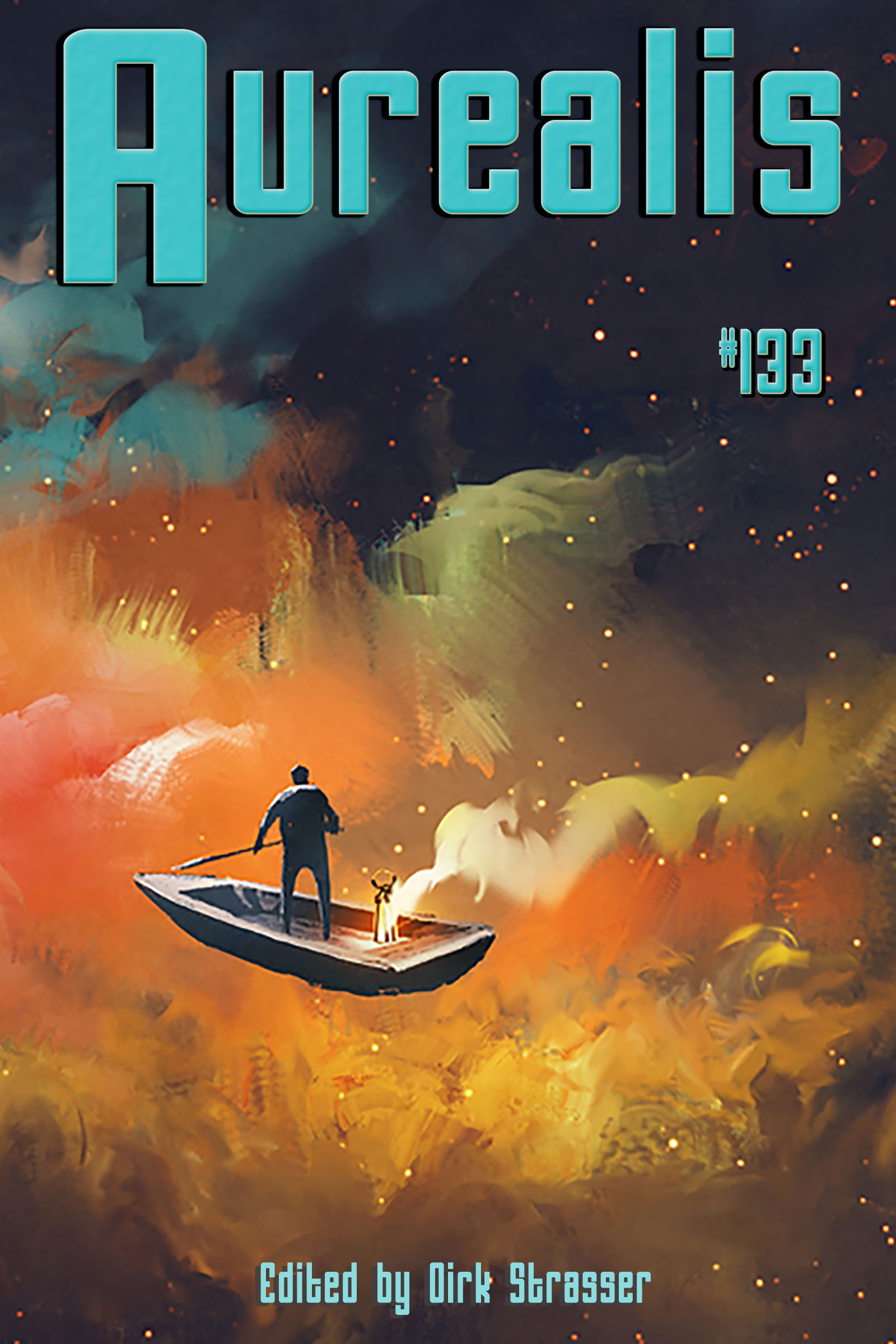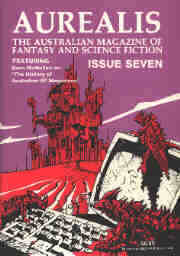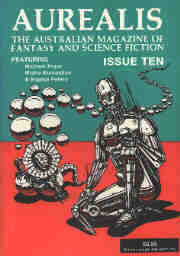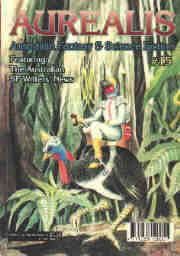Aurealis #133
$3.99
In this issue of Australia’s iconic Aurealis magazine, Nick Marone explores the themes longevity, self-determination, and the issue of disposable commodities in his poignant ‘The House of Time’. Chris Catlin’s does a clever science fictional rewrite of the classic Sisyphus myth in ‘CSFS’, while Grant Longstaff creeps us all out with the granddaddy of haunted forest stories, ‘The Forest Abyss’.
All Aurealis store prices are in USD
- From the Cloud — Dirk Strasser
- The House of Time — Nick Marone
- CSFS — Chris Catlin
- The Forest Abyss — Grant Longstaff
- CONQUIST Part 7—The Mouth of Gold — Dirk Strasser
- The Science and the Magic Inside Fantasy Fiction — Matthew Nelson
- Dark Fiction — Eugen Bacon
- Ernest Favenc: Racism, Literary Games and a Touch of the Speculative — Gillian Polack
Why do some people hate fantasy and science fiction with a vengeance while others adore it? Is it simply a ‘pineapple on pizza’ thing? A matter of taste? Or is there something more profound at work?
I suspect it comes down to a concept that gets thrown around in all sorts of contexts: the suspension of disbelief. The term was coined by Samuel Taylor Coleridge in 1817 and was originally about how modern readers can pretend to themselves while reading fiction to accept the reality of the supernatural. It’s a matter of, for a specific time span, deliberately putting aside what you would consider irrational in real life for the sake of the reading experience. You accept its reality so that you can immerse yourself in the story rather than skirt across the surface. Why would you do this? Coleridge argued that giving yourself over to the author’s vision of the world long enough to appreciate the work ‘awakens the mind’. We can see things we’ve never seen before, feel things we’ve never felt, and experience worlds we’ve never visited.
So, originally suspension of disbelief was about the supernatural or fantastic in fiction. At its heart it’s a theory of how we read the genres we now call science fiction, fantasy and horror. In modern times the concept has been extended to include what we do when we read any fiction. Even the most realistic fiction is an artificial construction made to appear real. In order to get any emotional response when we read any story, we need to allow our minds to accept the reality of it. And the idea behind suspension of disbelief has further been extended to movies, theatre, cartoons and mental health.
There are clearly two sides to this phenomenon. The writer needs to be skilled enough to produce a work that makes the suspension possible. If a work is self-contradictory or confusing, the implausibilities and unrealities will block the experience. Coleridge would say the writer needs to be able to infuse the work with a ‘human interest and a semblance of truth’.
The reader, on the other hand, needs to be open to the experience. The question is, how ‘willing’ is this suspension? Why do some readers choose to and others don’t? Is it an innate ability, or is it something that can be enhanced? Judging by the number of people who loathe speculative fiction, and even the number of people who say they dislike fiction of any kind, this inclination isn’t universal. I suspect it’s a little like meditation or mindfulness. Some people have a greater natural inclination to it, but it’s possible to train yourself to do it. Other people have no interest in it at all.
If you’re reading this, you’re most likely to be willing to suspend. So get ready for your minds to be opened!
I pass, like night, from land to land;
I have strange power of speech;
That moment that his face I see,
I know the man that must hear me:
To him my tale I teach.
[The Rime of the Ancient Mariner by Samuel Taylor Coleridge]
All the best from the cloud!
Dirk Strasser
From The House of Time by Nick Marone:
I know what I am, and I know my purpose.
The maker himself stands in the foyer and adjusts my parameters via a tablet. I don’t like some of the changes he is making. Maybe my owners will change them again to suit their preferences.
From CSFS by Chris Catlin:
CSFS’s databanks surged, projecting hallucinatory images onto his visual system, overlaying past memories onto the unoccupied room before him.
He saw the technicians working as once they had: analysing readouts and feeding information into the consoles. He remembered their soft pink and brown skins, their movements and their voices.
From The Forest Abyss by Grant Longstaff:
Kat sat in the back of the rental car and played the part of gooseberry with silent perfection, enduring the insipid flirting of Amanda and Jacek as they drove deep into the Polish countryside.
From CONQUIST Part 7—The Mouth of Gold by Dirk Strasser:
I write these words in the full knowledge that I can no longer truthfully call myself a conquistador. While this realisation provides me with strange solace, there is a question that now troubles my soul. If I am no longer a servant of his Imperial Majesty Charles V, King of Spain, then what am I?
From The Science and the Magic Inside Fantasy Fiction by Matthew Nelson:
Two genres, science fiction and fantasy, grouped together in most modern bookstores, at first glance appear to be quite opposite. One has elves, dragons and magic, while the other has spaceships, time travel and the scientific method. A reader can generally tell which is science fiction within a few seconds. Stand in front of a bookshelf and point at what science fiction looks like and you’ll get it right just about every time. This is a fairly generous point of view that glosses over the technicalities of defining genre.
From Dark Fiction by Eugen Bacon:
I was seven or eight and it was night. I lay sprawled on a coach in the living room with my mother. She must have forgotten I was there, or perhaps she thought I was asleep. She was watching TV, a British horror film I Don’t Want to be Born (1975)
From Ernest Favenc: Racism, Literary Games and a Touch of the Speculative by Gillian Polack:
Last time I wrote about Ernest Favenc, I wrote about him as a writer of a lost race novel. I always think of the Australian version of these novels as novels about lost Lemuria because of G Firth-Scott’s novel about that missing country. Novels of lost Lemuria and their equivalents are rather important in Australia’s science fiction and fantasy history.





